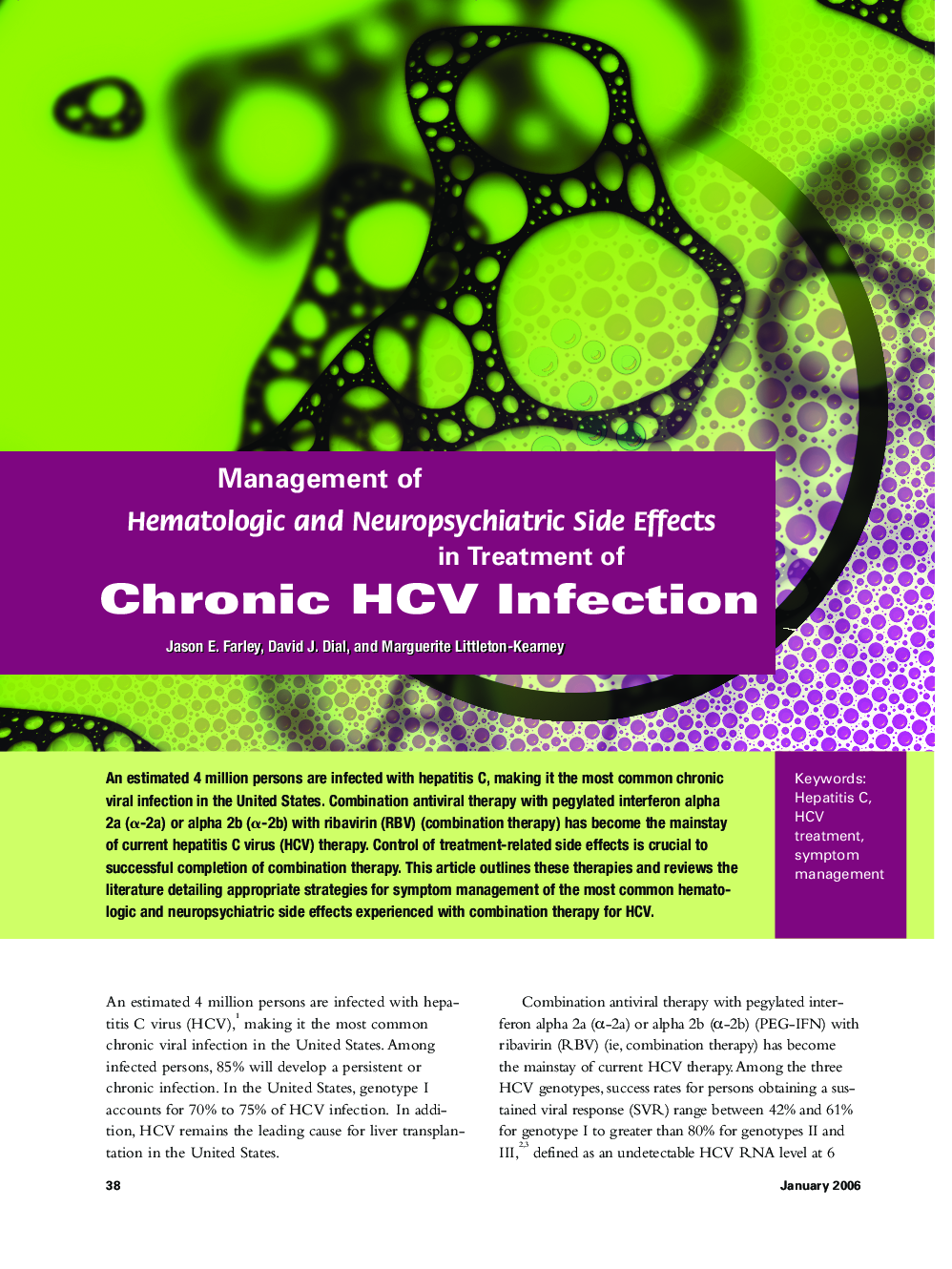| Article ID | Journal | Published Year | Pages | File Type |
|---|---|---|---|---|
| 2661839 | The Journal for Nurse Practitioners | 2006 | 8 Pages |
Abstract
An estimated 4 million persons are infected with hepatitis C, making it the most common chronic viral infection in the United States. Combination antiviral therapy with pegylated interferon alpha 2a (α-2a) or alpha 2b (α-2b) with ribavirin (RBV) (combination therapy) has become the mainstay of current hepatitis C virus (HCV) therapy. Control of treatment-related side effects is crucial to successful completion of combination therapy. This article outlines these therapies and reviews the literature detailing appropriate strategies for symptom management of the most common hematologic and neuropsychiatric side effects experienced with combination therapy for HCV.
Related Topics
Health Sciences
Medicine and Dentistry
Medicine and Dentistry (General)
Authors
Jason E. Farley, David J. Dial, Marguerite Littleton-Kearney,
